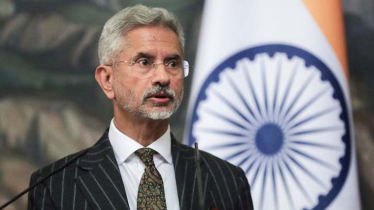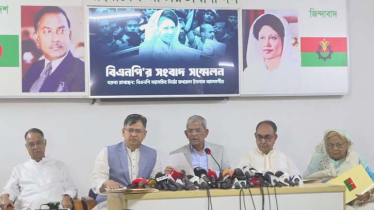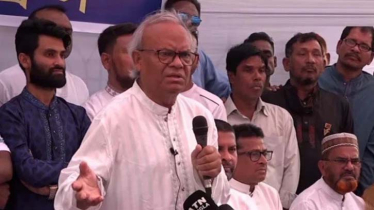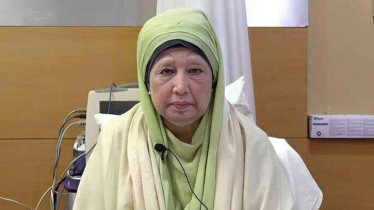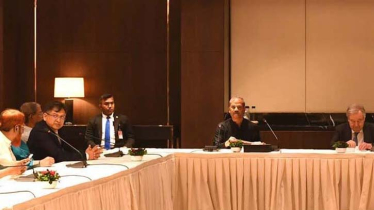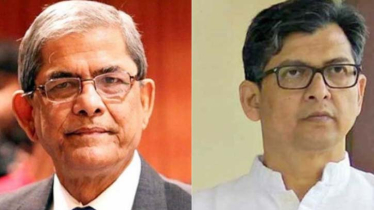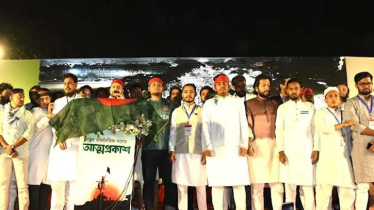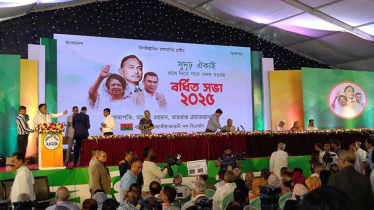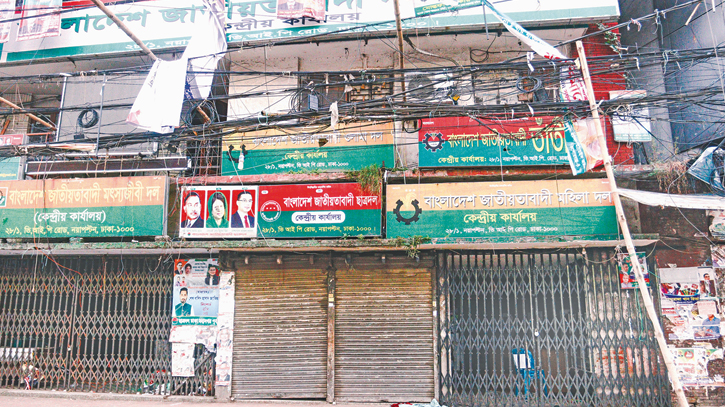
Photo : Rasheduzzaman
As the nation gears up for the 12th parliamentary elections scheduled for January 7, the Bangladesh Nationalist Party (BNP), the main opposition, finds itself on the sidelines, refusing to join any poll under the supervision of the Sheikh Hasina administration.
The Election Commission (EC) unveiled the election schedule last week, a move vehemently rejected by the BNP, which has been staging protests, including hartals and blockades across the country in recent weeks, demanding the resignation of Prime Minister Sheikh Hasina.
Despite the party's leadership dismissing concerns over its future, political analysts and opponents argue that the BNP's continued boycott of elections could jeopardize its very existence. The party boycotted the past two general elections, allowing its arch-rival Awami League to secure a dominant majority on both occasions.
Bashir Ahmed, a political analyst and professor at Jahangir University's Department of Government and Politics, expressed concern over the BNP's strategy, stating, "BNP is forgetting the aim and objectives of a political party. A political party can't serve the people of a country without joining an election, but BNP is again and again boycotting polls, which is dangerous for a political party."
"I believe the forthcoming general election will be conducted in a free and fair manner, and I encourage the BNP to actively engage in the polls. For the party to endure in politics, it is imperative to participate in elections," Ahmed added.
Former lawmaker and BNP International Affairs Secretary Barrister Rumeen Farhana, however, remains confident about the party's resilience. In a conversation with The Daily Messenger, she said, "BNP will endure as long as Bangladesh exists. As a party of the masses, BNP will resiliently rise, like the Phoenix, from any suppression, repression, or crackdown orchestrated by the government or its law enforcers."
Contrarily, AL Joint General Secretary Mahbubul Alam Hanif warned that the BNP is already on the brink of collapse due to its persistent avoidance of elections. "If BNP chooses to boycott the upcoming elections again, its very existence will be in jeopardy," Hanif stated.
As the political landscape heats up in anticipation of the elections, the fate of the BNP hangs in the balance, with analysts and political figures closely watching whether the party will reconsider its stance and actively participate in the democratic process.
Meanwhile, an air of frustration looms over the Bangladesh Nationalist Party (BNP) headquarters, casting a shadow not only on the party's leadership but also among its workers. This follows the incarceration of most top-ranking party officials due to an intensified crackdown by law enforcement agencies.
In the Naya Paltan area, the site of the BNP central office, a conspicuous police presence is now evident. Since the initiation of political unrest on October 28, subsequent to the BNP's grand rally, law enforcement has taken actions against the party. Mirza Fakhrul Islam Alamgir, the central secretary-general of BNP, was apprehended the following day, leading to the arrest of numerous central, district, and grassroots leaders. Currently, a majority of BNP leaders find themselves in hiding.
The BNP central office has remained under lock and key since the commencement of the political turmoil. While barricades on both sides of the office were removed on Tuesday, BNP
leaders assert that the prevailing fear of arrests dissuades anyone from venturing to the office.
During Sunday noon in New Paltan, it was evident that the main gate of the BNP office remains padlocked. Law enforcement personnel are actively maintaining a vigilant presence on the road in front of the office, with intelligence agency members conducting surveillance.
This crackdown has not only disrupted the party's internal workings but has also cast doubt on the BNP's potential participation in the upcoming parliamentary elections.
Messenger/Disha

